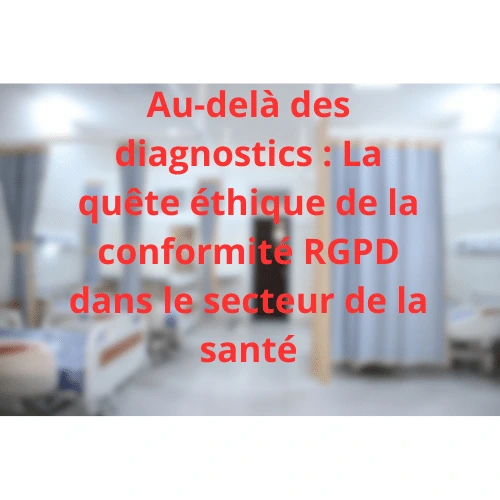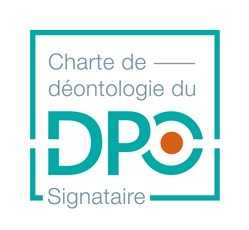Beyond Diagnostics: The Ethical Quest for GDPR Compliance in the Healthcare Sector
The healthcare sector is rapidly evolving thanks to technological advancements, offering new possibilities for patient care and well-being. However, this raises crucial ethical questions regarding the protection of health data and patient confidentiality. In this ethical quest, the General Data Protection Regulation (GDPR) plays a vital role in ensuring appropriate compliance and preserving data integrity in the healthcare sector.
The Importance of Health Data Confidentiality
Health data is among the most sensitive and personal information an individual can share. The confidentiality of this data is essential to maintaining trust between patients and healthcare professionals. For example, a patient consulting a psychiatrist for mental health issues must feel secure knowing that their personal information will not be disclosed without their consent. The GDPR imposes strict obligations regarding the confidentiality of health data and aims to protect individuals’ fundamental rights.
The Ethical Challenges of Collecting and Sharing Health Data
In the healthcare sector, the collection and sharing of health data are essential for providing quality care and conducting medical research. However, these practices raise significant ethical challenges. For example, a pharmaceutical company collecting health data for clinical trials must ensure it obtains informed consent from participants and guarantees that their data is used only for specific and legitimate purposes. The GDPR requires complete transparency in the collection and processing of health data, urging organizations to adopt strict policies to protect individuals’ rights and privacy.
The Benefits of an Ethical Approach to GDPR Compliance
Adopting an ethical approach to GDPR compliance in the healthcare sector offers numerous benefits. Firstly, it strengthens patient trust. When a patient knows that their health data is handled securely and confidentially, they are more likely to share crucial information for their diagnosis and treatment. For example, a cancer treatment clinic implementing strict measures to protect patient data will inspire trust and encourage patients to share sensitive information that could help improve their treatment.
Moreover, an ethical approach to GDPR compliance promotes medical research. By protecting health data and ensuring confidentiality, researchers can conduct in-depth studies to improve treatments and care. For example, a university conducting a study on cardiovascular diseases can collect health data from willing patients. By adhering to GDPR principles, it ensures data confidentiality and enables researchers to make discoveries that could save lives.
Best Practices for Ethical GDPR Compliance in the Healthcare Sector
To ensure ethical GDPR compliance in the healthcare sector, it is essential to follow certain best practices. First, it is crucial to obtain informed consent from patients before collecting and processing their data. This means clearly explaining the purposes of the collection, the recipients of the data, and the rights they hold. For example, a medical laboratory collecting tissue samples for research must inform patients about the study’s objectives and obtain their informed consent before proceeding.
Additionally, it is vital to implement robust security measures to protect health data against unauthorized access or breaches. This may involve using encryption technologies, firewalls, and advanced security protocols to prevent cyberattacks. For example, a hospital storing electronic medical records must implement sophisticated security systems to protect data against intrusion attempts.
Finally, regular staff training on data protection best practices is essential to ensure ethical GDPR compliance in the healthcare sector. All healthcare professionals must be informed of their responsibilities regarding data protection and the measures to take to ensure patient confidentiality. For example, a medical center can organize regular training sessions to raise staff awareness about data protection practices and the risks associated with breaches.
In Summary
In the ethical quest for GDPR compliance in the healthcare sector, it is essential to preserve the confidentiality of health data while providing quality care. By adhering to GDPR principles, medical organizations can ensure patient trust, promote medical research, and protect individuals’ rights and privacy. Ethical GDPR compliance is a shared responsibility that requires collaboration between healthcare professionals, patients, and regulatory authorities, with the ultimate goal of improving healthcare while respecting fundamental ethical values.
To learn more about GDPR compliance in the healthcare sector and how you can implement an ethical approach to data protection, visit the website of My Data Solution, a company specializing in GDPR compliance solutions.





